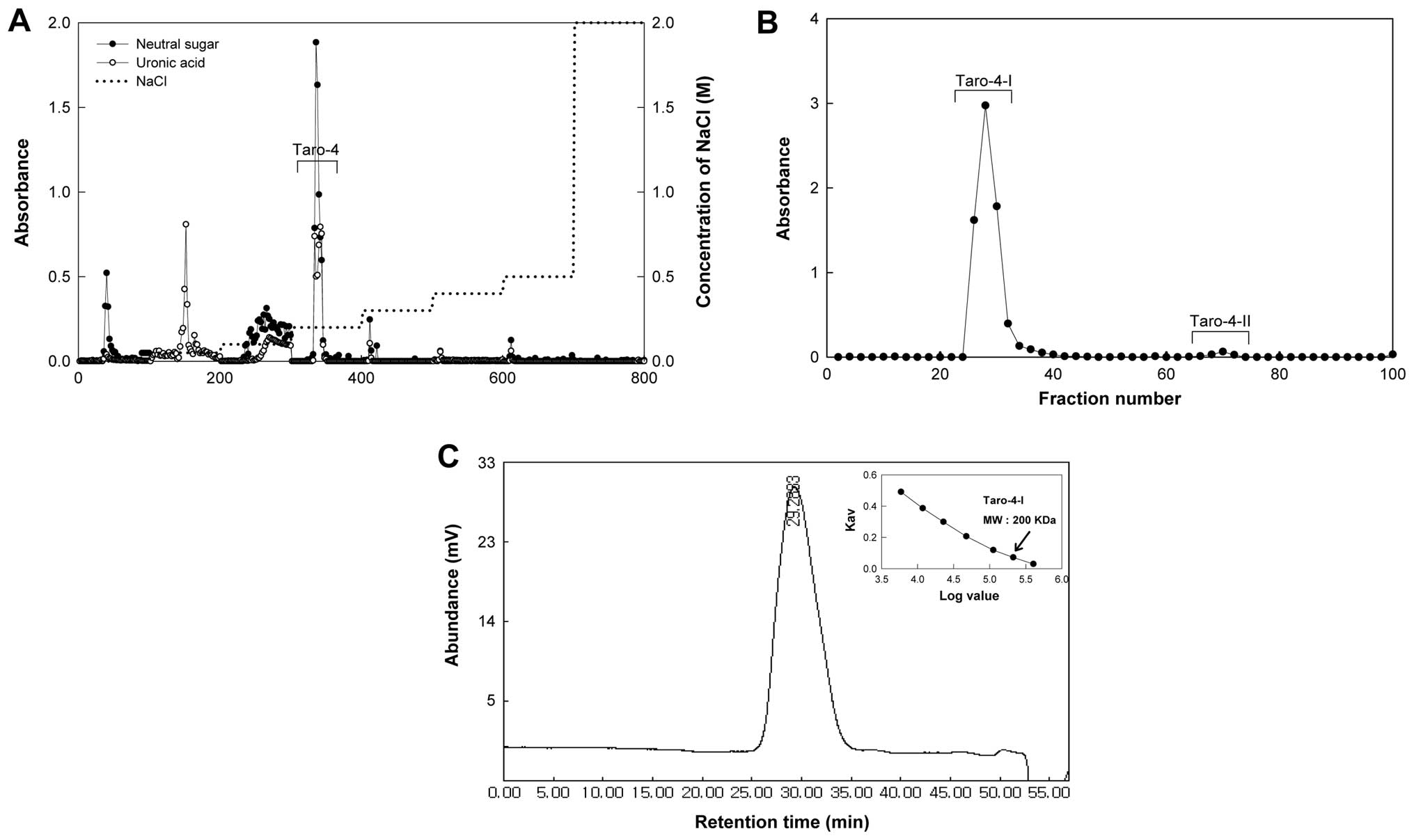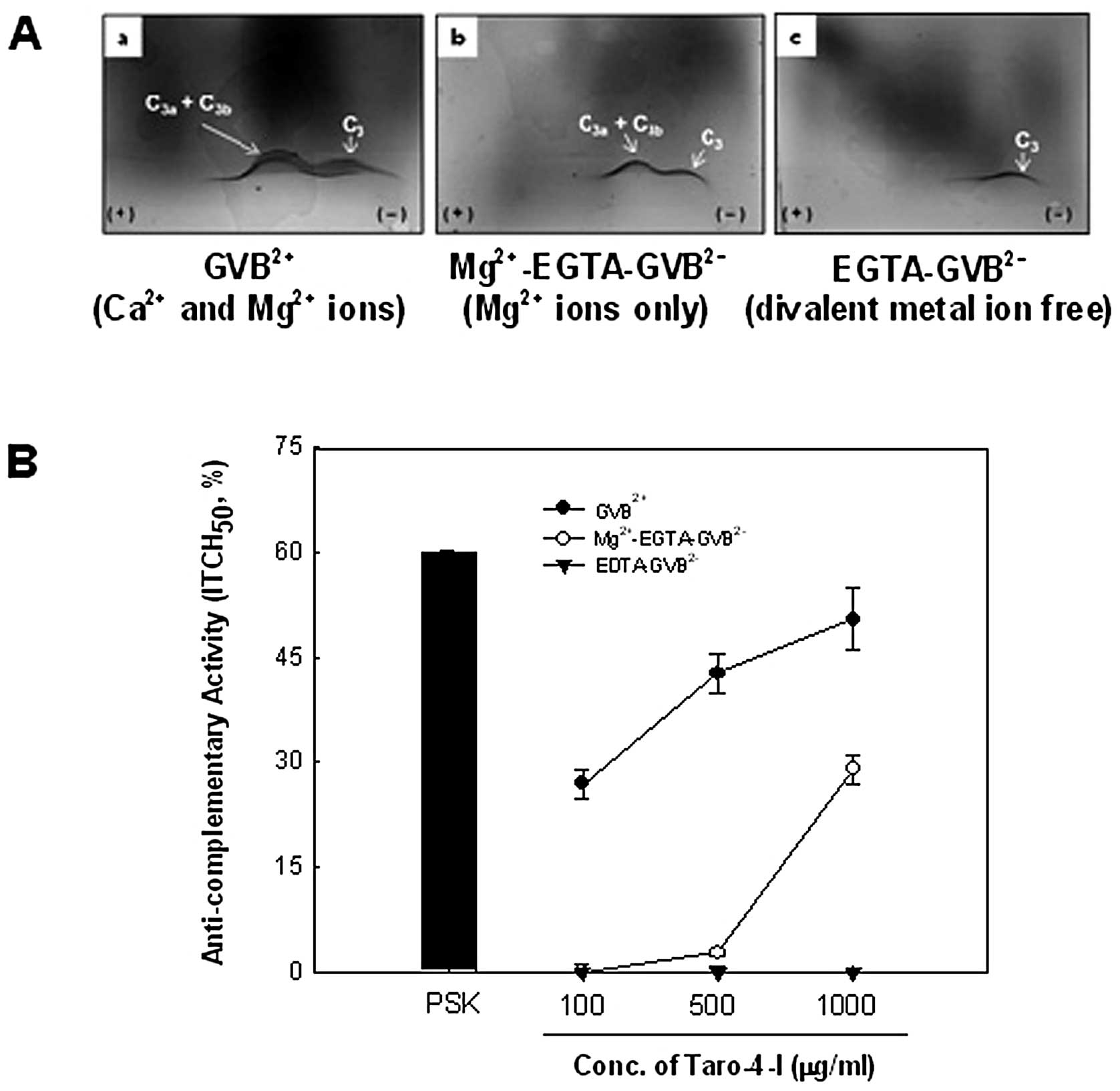|
1.
|
Liotta LA, Steeg PS and Stetler-Stevenson
WG: Cancer metastasis and angiogenesis: an imbalance of positive
and negative regulation. Cell. 64:327–336. 1991. View Article : Google Scholar : PubMed/NCBI
|
|
2.
|
Weiss L: Metastatic inefficiency. Adv
Cancer Res. 54:159–211. 1990. View Article : Google Scholar : PubMed/NCBI
|
|
3.
|
Chambers AF, Groom AC and MacDonald IC:
Dissemination and growth of cancer cells in metastatic sites. Nat
Rev Cancer. 2:563–572. 2002. View
Article : Google Scholar : PubMed/NCBI
|
|
4.
|
Han SS, Cho CK, Lee YW and Yoo HS:
Antimetastatic and immunomodulating effect of water extracts from
various mushrooms. J Acupunct Meridian Stud. 2:218–227. 2009.
View Article : Google Scholar : PubMed/NCBI
|
|
5.
|
Tan W, Lu J, Huang M, et al: Anti-cancer
natural products isolated from Chinese medicinal herbs. Chin Med.
6:27–42. 2011. View Article : Google Scholar : PubMed/NCBI
|
|
6.
|
Harada M, Seta K, Ito O, et al:
Concomitant immunity against tumor development is enhanced by the
oral administration of a kampo medicine, Hochu-ekki-to (TJ-41:
Bu-Zhong-Yi-Qi-Tang). Immunopharmacol Immunotoxicol. 17:687–703.
1995. View Article : Google Scholar : PubMed/NCBI
|
|
7.
|
Sheth AK: The Herbs of Ayurveda. A.K.
Sheth Publishers; Ahmedabad: 2005
|
|
8.
|
Prajapati R, Kalariya M, Umbarkar R, et
al: Colocasia esculenta: a potent indigenous plant. Int J
Nutr Pharmacol Neurol Dis. 1:90–96. 2011. View Article : Google Scholar
|
|
9.
|
Brown AC, Reitzenstein JE, Liu J, et al:
The anti-cancer effects of poi (Colocasia esculenta) on
colonic adenocarcinoma cells in vitro. Phytother Res. 19:767–771.
2005.PubMed/NCBI
|
|
10.
|
Dubois M, Gilles K, Hamilton JK, et al: A
colorimetric method for the determination of sugars. Nature.
168:1671951. View
Article : Google Scholar : PubMed/NCBI
|
|
11.
|
Blumenkrantz N and Asboe-Hansen G: New
method for quantitative determination of uronic acids. Anal
Biochem. 54:484–489. 1973. View Article : Google Scholar : PubMed/NCBI
|
|
12.
|
Bradford MM: A rapid and sensitive method
for the quantitation of microgram quantities of protein utilizing
the principle of protein-dye binding. Anal Biochem. 72:248–254.
1976. View Article : Google Scholar : PubMed/NCBI
|
|
13.
|
Jones TM and Albersheim P: A gas
chromatographic method for the determination of aldose and uronic
acid constituents of plant cell wall polysaccharides. Plant
Physiol. 49:926–936. 1972. View Article : Google Scholar : PubMed/NCBI
|
|
14.
|
Kabat EA and Mayer MM: Complement and
complement fixation. Experimental Immunochemistry. 2nd edition.
Charles C. Thomas; Springfield, IL: pp. 133–240. 1971
|
|
15.
|
Saito H, Tomioka H and Sato K: PSK, a
polysaccharide from Coriolus vesicolor, enhances oxygen
metabolism of murine peritoneal macrophages and the host resistance
to listerial infection. J Gen Microbiol. 134:1029–1035.
1988.PubMed/NCBI
|
|
16.
|
Shimura K, Ito H and Hibasami H: Screening
of host-mediated antitumor polysaccharides by crossed
immunoelectrophoresis using fresh human serum. Jpn J Pharmacol.
33:403–408. 1983. View Article : Google Scholar
|
|
17.
|
Cyong JC, Witkin SS, Rieger B, et al:
Antibody-independent complement activation by myelin via the
classical complement pathway. J Exp Med. 155:587–598. 1982.
View Article : Google Scholar : PubMed/NCBI
|
|
18.
|
Saiki I, Saito S, Fujita C, et al:
Induction of tumoricidal macrophages and production of cytokines by
synthetic muramyl dipeptide analogues. Vaccine. 6:238–244. 1988.
View Article : Google Scholar : PubMed/NCBI
|
|
19.
|
Kim YH, Park JH, Lee M, et al:
Polyethylenimine with acid-labile linkages as a biodegradable gene
carrier. J Control Release. 103:209–219. 2005. View Article : Google Scholar : PubMed/NCBI
|
|
20.
|
Kiessling R, Klein E and Wigzell H:
Natural killer cells in the mouse. I. Cytotoxic cells with
specificity for mouse Moloney leukemia cells Specificity and
distribution according to genotype. Eur J Immunol. 5:112–117. 1975.
View Article : Google Scholar
|
|
21.
|
Yoon TJ, Yoo YC, Kang TB, et al:
Prophylactic effect of Korean mistletoe (Viscum album
coloratum) extract on tumor metastasis is mediated by
enhancement of NK cell activity. Int J Immunopharmacol. 20:163–172.
1998.
|
|
22.
|
Yoo YC, Saiki I, Sato K and Azuma I:
MDP-Lys(L18), a lipophilic derivative of muramyl dipeptide,
inhibits the metastasis of haematogenous and non-haematogenous
tumours in mice. Vaccine. 12:175–180. 1994. View Article : Google Scholar : PubMed/NCBI
|
|
23.
|
Platts-Mills TA and Ishizaka K: Activation
of the alternative pathway of human complement by rabbit cells. J
Immunol. 113:348–358. 1974.
|
|
24.
|
Fearon DT and Locksley RM: The instructive
role of innate immunity in the acquired immune response. Science.
272:50–53. 1996. View Article : Google Scholar : PubMed/NCBI
|
|
25.
|
Zhu H, Di H, Zhang Y, Zhang J, et al: A
protein-bound polysaccharide from the stem bark of Eucommia
ulmoides and its anti-complementary effect. Carbohydr Res.
344:1319–1324. 2009. View Article : Google Scholar
|
|
26.
|
Frank MM and Fries LF: The role of
complement in inflammation and phagocytosis. Immunol Today.
12:322–326. 1991. View Article : Google Scholar : PubMed/NCBI
|
|
27.
|
Wasser SP: Medicinal mushrooms as a source
of antitumor and immunomodulating polysaccharides. Appl Microbiol
Biotechnol. 60:258–274. 2002.PubMed/NCBI
|
|
28.
|
Paulsen BS: Plant polysaccharides with
immunostimulatory activities. Curr Org Chem. 5:939–950. 2001.
View Article : Google Scholar
|
|
29.
|
Ooi VE and Liu F: Immunomodulation and
anti-cancer activity of polysaccharide-protein complexes. Curr Med
Chem. 7:715–729. 2000. View Article : Google Scholar : PubMed/NCBI
|
|
30.
|
Kweon MH, Hwang HJ and Sung HC: Isolation
and characterization of anticomplementary beta-glucans from the
shoots of bamboo Phyllostachys edulis. Planta Med. 69:56–62.
2003. View Article : Google Scholar : PubMed/NCBI
|
|
31.
|
Tzianabos AO: Polysaccharide
immunomudulators as therapeutic agents: structural aspects and
biologic function. Clin Microbiol Rev. 13:523–533. 2000. View Article : Google Scholar : PubMed/NCBI
|
|
32.
|
Torisu M, Hayashi Y, Ishimitsu T, et al:
Significant prolongation of disease-free period gained by oral
polysaccharide K (PSK) administration after curative surgical
operation of colorectal cancer. Cancer Immunol Immunother.
31:261–268. 1990. View Article : Google Scholar
|
|
33.
|
Vivier E, Nunes JA and Vely F: Natural
killer cell signaling pathways. Science. 306:1517–1519. 2004.
View Article : Google Scholar : PubMed/NCBI
|
|
34.
|
van Dommelen SLH, Sumaria N, Schreiber RD,
et al: Perforin and granzymes have stinct roles in defensive
immunity and immunopathology. Immunity. 25:835–848. 2006.PubMed/NCBI
|



















